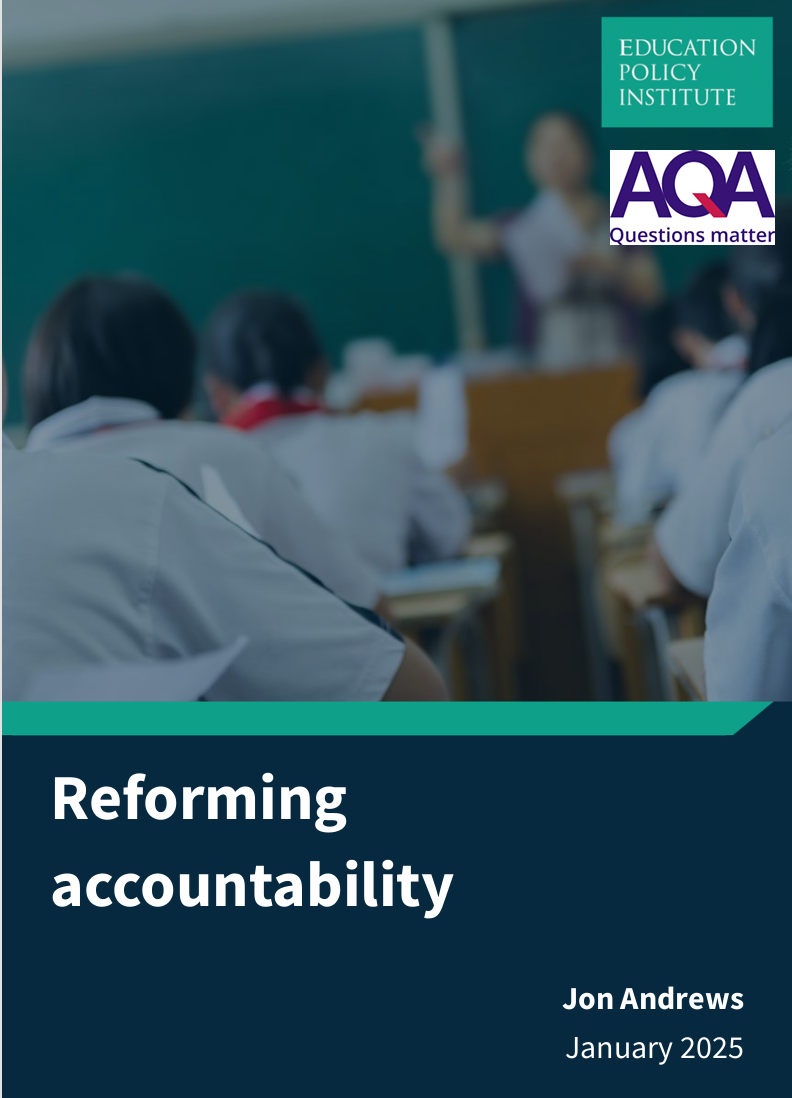A new paper published by the Education Policy Institute sheds light on the flaws of the current accountability system and calls for a fairer and more holistic approach to measuring school effectiveness. The paper highlights that:
• Current performance measures can provide a disincentive to schools being inclusive for all pupils. Inflexible systems that do not recognise and adjust for the high level of additional needs amongst some pupils are incompatible with an education system that works for all.
• Accountability measures are making things more difficult for schools in the most challenging areas. Around one-in-three of the most disadvantaged schools are labelled as “well below average” by the Department for Education on their key measure of secondary school performance (Progress 8), compared with just one-in-fifty of the least disadvantaged. Being labelled as underperforming can make it more difficult for a school to improve.
• Parents and carers are not well served by an accountability system that remains focussed on individual schools. While Ofsted reports comment on the efficacy of individual schools in relation to quality of education and leadership and management, the reality is that decisions around financial management, workforce deployment, and the curriculum offer are now often taken at trust level rather than in individual academies.
The Government should press ahead with their report card to give a wider view of school performance and today EPI has published an updated online benchmarking tool as a blueprint for the new report card. The interactive tool allows the direct comparison of individual academy trusts, local authorities, and other groups, providing empirical data on academic attainment and progress; pupil inclusion; and workforce and financial management. The tool is available here.
EPI also recommends that:
• The government should consider how to reflect children and young people’s wellbeing. There are no current measures of pupil wellbeing available in centrally collected data. The #BeeWell annual survey of pupil wellbeing has been in operation in Greater Manchester since 2021, and more recently across Hampshire, Isle of Wight, Portsmouth and Southampton [1] and is an example of how this data could be collected more widely.
• The government and Ofsted should implement plans for MAT inspection but in consultation with the sector and building in acknowledgement of different size and scale of MATs.
• Ofsted’s role should focus on assessing the quality of teaching and learning, and a broad and balanced curriculum, rather than on those areas which can be better served by more frequent empirical data. Its emphasis on inclusion in the new framework should be the extent to which the curriculum and teaching is flexible to the needs of all pupils, in particular those with special educational needs. To maintain its independence, Ofsted should not have a role in school improvement.
• Ofsted should separate safeguarding from other elements of the accountability system. The high-stakes nature of inspection may also have the unintended consequence of incentivising people to ‘hide’ issues rather than acknowledge them and seek help. The nature of safeguarding risks is constantly evolving, and all schools require regular training and feedback.
You can download and read the full report here.

[1] A collaboration between the University of Manchester, the Gregson Family Foundation and Anna Freud. https://beewellprogramme.org/
This report is kindly funded by AQA

AQA or Assessment and Qualifications Alliance, is an independent education charity that sets and marks exams for GCSEs, AS and A-levels, the Extended Project Qualification, Tech-levels and Technical Awards, and other qualifications in the UK. Find more about them here

